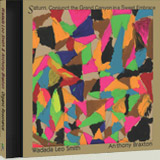
In Stock
Quantity in Basket: None
Log In to use our Wish List
Shipping Weight: 5.00 units
EU & UK Customers:
Discogs.com can handle your VAT payments
So please order through Discogs
Sample The Album:
Wadada Leo Smith-trumpet, flugelhorn
Anthony Braxton-saxophone, alto saxophone, soprano saxophone, sopranino saxophone
Click an artist name above to see in-stock items for that artist.
UPC: 808713001029
Label: Pi Recordings
Catalog ID: Pi 10
Squidco Product Code: 4270
Format: CD
Condition: New
Released: 2003
Country: USA
Packaging: Jewel Tray
Recorded live at Tonic, in New York City, New York, on April 5th, 2003, by Val Jeanty.
Artist Biographies
• Show Bio for Wadada Leo Smith "Ishmael Wadada Leo Smith: trumpeter and multi-instrumentalist, composer and improviser has been active in creative contemporary music for over forty years. His systemic music language Ankhrasmation is significant in his development as an artist and educator. Born in Leland, Mississippi, Smith's early musical life began in the high school concert and marching bands. At the age of thirteen, he became involved with the Delta Blues and Improvisation music traditions. He received his formal musical education with his stepfather Alex Wallace, the U.S. Military band program (1963), Sherwood School of Music (1967-69), and Wesleyan University (1975-76). Mr. Smith has studied a variety of music cultures: African, Japanese, Indonesian, European and American. He has taught at the University of New Haven (1975-'76), the Creative Music Studio in Woodstock, NY (1975-'78), and Bard College (1987-'93). He is currently a faculty member at The Herb Alpert School of Music at California Institute of the Arts. He is the director of the African-American Improvisational Music program, and is a member of ASCAP, Chamber Music America, and the Association for the Advancement of Creative Musicians. Mr. Smith's awards and commissions include: MAP Fund Award for "Ten Freedom Summers" (2011), Chamber Music America New Works Grant (2010), NEA Recording Grant (2010), Fellow of the John Simon Guggenheim Memorial Foundation (2009-2010), Other Minds residency and "Taif", a string quartet commission (2008), Fellow of the Jurassic Foundation (2008), FONT(Festival of New Trumpet) Award of Recognition (2008), Jazz Journalists Association Jazz Award (2005), Islamic World Arts Initiative of Arts International (2004), Fellow of the Civitela Foundation (2003), Fellow at the Atlantic Center for the Arts (2001), "Third Culture Copenhagen" in Denmark-presented a paper on Ankhrasmation (1996), Meet the Composer/Lila Wallace-Reader's Digest Commissioning Program (1996), Asian Cultural Council Grantee to Japan (June-August 1993), Meet the Composer/Lila Wallace-Reader's Digest Commissioning Program (1990), New York Foundation on the Arts Fellowship in Music (1990), Numerous Meet the Composer Grants (since 1977), and National Endowment for the Arts Music Grants (1972, 1974, 1981). Mr. Smith's music philosophy Notes (8 Pieces) Source a New. World Music: Creative Music has been published by Kiom Press (1973), translated and published in Japan by Zen-On Music Company Ltd. (1976). In 1981 Notes was translated into Italian and published by Nistri-Litschi Editori. He was invited to a conference of artists, scientists and philosophers "Third Culture Copenhagen" in Denmark 1996, and presented a paper on his Ankhrasmation music theory and notational system for creative musicians. His interview was recorded for Denmark T.V., broadcasted September 1996. Some of the artists Mr. Smith has performed with are : Muhal Richard Abrams, Anthony Braxton, Leroy Jenkins, Roscoe Mitchell, Lester Bowie, Richard Teitelbaum, Joseph Jarman, George Lewis, Cecil Taylor, Andrew Cyrill, Oliver Lake, Anthony Davis, Carla Bley, David Murray, Don Cherry, Jeanne Lee, Milton Campbell, Henry Brant, Richard Davis, Tadao Sawai, Ed Blackwell, Sabu Toyozumi, Peter Kowald, Kazuko Shiraishi, Han Bennink, Misja Mengelberg, Marion Brown, Kazutoki Umezu, Kosei Yamamoto, Charlie Haden, Kang Tae Hwan, Kim Dae Hwan, Tom Buckner, Malachi Favors Magoustous and Jack Dejohnette among many others. Mr. Smith currently has three ensembles: Golden Quartet, Silver Orchestra, and Organic. His compositions have also been performed by other contemporary music ensembles: AACM-Orchestra, Kronos Quartet, Da Capo Chamber Player, New Century Players, San Francisco Contemporary Music Players, Contemporary Chamber Players (University of Chicago), S.E.M. Ensemble, Southwest Chamber Music, Del Sol String Quartet, New York New Music Ensemble, ne(x)tworks, and California E.A.R. Unit. Mr. Smith's music for multi-ensembles has been performed since 1969. "Tabligh" for double-ensemble was performed by Golden Quartet and Classical Persian ensemble at Merkin Concert Hall (2006) and by Golden Quartet and Suleyman Erguner's Classical Turkish ensemble at Akbank Music Festival in Istanbul (2007). His largest work "Odwira" for 12 multi-ensembles (52 instrumentalists) was performed at California Institute of the Arts (March 1995). His Noh piece "Heart Reflections" was performed in Merkin Concert Hall, NY (November 1996)." ^ Hide Bio for Wadada Leo Smith • Show Bio for Anthony Braxton [Anthony Braxton (born June 4, 1945) is an American composer and instrumentalist.] "Genius is a rare commodity in any art form, but at the end of the 20th century it seemed all but non-existent in jazz, a music that had ceased looking ahead and begun swallowing its tail. If it seemed like the music had run out of ideas, it might be because Anthony Braxton covered just about every conceivable area of creativity during the course of his extraordinary career. The multi-reedist/composer might very well be jazz's last bona fide genius. Braxton began with jazz's essential rhythmic and textural elements, combining them with all manner of experimental compositional techniques, from graphic and non-specific notation to serialism and multimedia. Even at the peak of his renown in the mid- to late '70s, Braxton was a controversial figure amongst musicians and critics. His self-invented (yet heavily theoretical) approach to playing and composing jazz seemed to have as much in common with late 20th century classical music as it did jazz, and therefore alienated those who considered jazz at a full remove from European idioms. Although Braxton exhibited a genuine -- if highly idiosyncratic -- ability to play older forms (influenced especially by saxophonists Warne Marsh, John Coltrane, Paul Desmond, and Eric Dolphy), he was never really accepted by the jazz establishment, due to his manifest infatuation with the practices of such non-jazz artists as John Cage and Karlheinz Stockhausen. Many of the mainstream's most popular musicians (Wynton Marsalis among them) insisted that Braxton's music was not jazz at all. Whatever one calls it, however, there is no questioning the originality of his vision; Anthony Braxton created music of enormous sophistication and passion that was unlike anything else that had come before it. Braxton was able to fuse jazz's visceral components with contemporary classical music's formal and harmonic methods in an utterly unselfconscious -- and therefore convincing -- way. The best of his work is on a level with any art music of the late 20th century, jazz or classical. Braxton began playing music as a teenager in Chicago, developing an early interest in both jazz and classical musics. He attended the Chicago School of Music from 1959-1963, then Roosevelt University, where he studied philosophy and composition. During this time, he became acquainted with many of his future collaborators, including saxophonists Joseph Jarman and Roscoe Mitchell. Braxton entered the service and played saxophone in an Army band; for a time he was stationed in Korea. Upon his discharge in 1966, he returned to Chicago where he joined the nascent Association for the Advancement of Creative Musicians (AACM). The next year, he formed an influential free jazz trio, the Creative Construction Company, with violinist Leroy Jenkins and trumpeter Leo Smith. In 1968, he recorded For Alto, the first-ever recording for solo saxophone. Braxton lived in Paris for a short while beginning in 1969, where he played with a rhythm section comprised of bassist Dave Holland, pianist Chick Corea, and drummer Barry Altschul. Called Circle, the group stayed together for about a year before disbanding (Holland and Altschul would continue to play in Braxton-led groups for the next several years). Braxton moved to New York in 1970. The '70s saw his star rise (in a manner of speaking); he recorded a number of ambitious albums for the major label Arista and performing in various contexts. Braxton maintained a quartet with Altschul, Holland, and a brass player (either trumpeter Kenny Wheeler or trombonist George Lewis) for most of the '70s. During the decade, he also performed with the Italian free improvisation group Musica Elettronica Viva, and guitarist Derek Bailey, as well as his colleagues in AACM. The '80s saw Braxton lose his major-label deal, yet he continued to record and issue albums on independent labels at a dizzying pace. He recorded a memorable series of duets with bop pioneer Max Roach, and made records of standards with pianists Tete Montoliu and Hank Jones. Braxton's steadiest vehicle in the '80s and '90s -- and what is often considered his best group -- was his quartet with pianist Marilyn Crispell, bassist Mark Dresser, and drummer Gerry Hemingway. In 1985, he began teaching at Mills College in California; he subsequently joined the music faculty at Wesleyan University in Connecticut, where he taught through the '90s. During that decade, he received a large grant from the MacArthur Foundation that allowed him to finance some large-scale projects he'd long envisioned, including an opera. At the beginning of the 21st century, Braxton was still a vital presence on the creative music scene." ^ Hide Bio for Anthony Braxton
10/30/2024
Have a better biography or biography source? Please Contact Us so that we can update this biography.
10/30/2024
Have a better biography or biography source? Please Contact Us so that we can update this biography.
Track Listing:
1. Composition No.316 28:40
2. Saturn, Conjunct The Grand Canyon In A Sweet Embrace 13:23
3. Goshawk 8:58
Pi Records
NY Downtown & Jazz/Improv
Jazz
Smith, Leo
Improvised Music
Anthony Braxton
Duo Recordings
Before April-2006
Instant Rewards
Search for other titles on the label:
Pi Recordings.



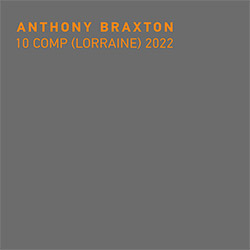


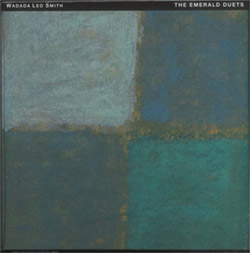
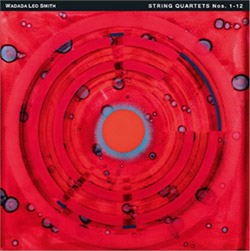
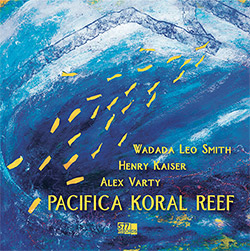
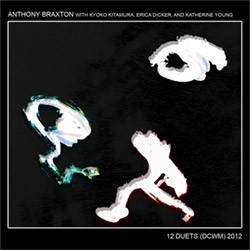


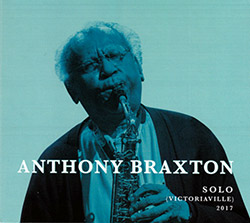

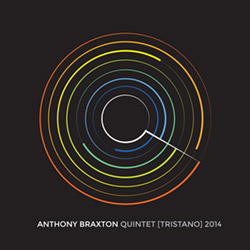


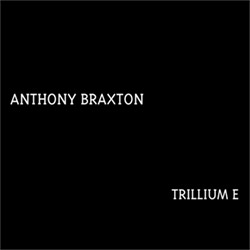
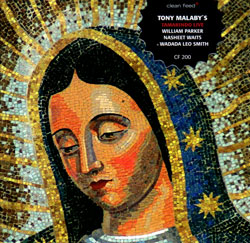
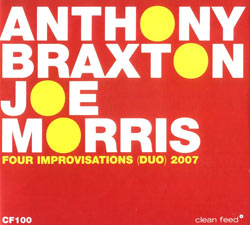
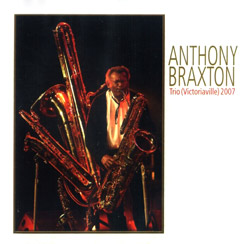
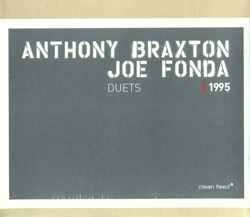
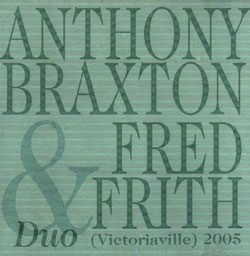
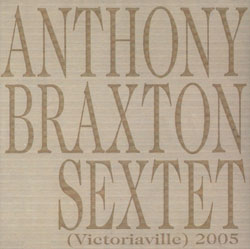
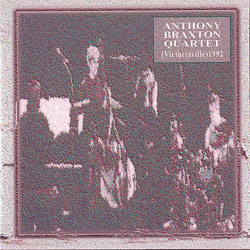
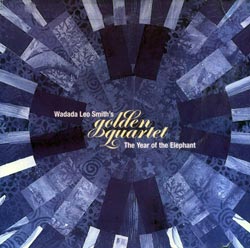








![Musicworks Magazine: #149 Fall 2024 [MAGAZINE + CD]](https://www.teuthida.com/productImages/misc4/35470.jpg)

![Nevai, Nandor: <<The PRICE of FRONTIER>> Book 1: FULK [BOOK + 4 CDs]](https://www.teuthida.com/productImages/misc4/35464.jpg)
![Nevai, Nandor: <<The PRICE of FRONTIER>> Book 2: MARTIAL [BOOK + 4 CDs]](https://www.teuthida.com/productImages/misc4/35465.jpg)
![Nevai, Nandor: <<The PRICE of FRONTIER>> Book 3: JASSOM [BOOK + 4 CDs]](https://www.teuthida.com/productImages/misc4/35466.jpg)
![Nevai, Nandor: <<The PRICE of FRONTIER>> Book 4: HARD-WON [BOOK + 4 CDs]](https://www.teuthida.com/productImages/misc4/35467.jpg)



![Elephant9 with Terje Rypdal: Catching Fire [VINYL 2 LPs]](https://www.teuthida.com/productImages/misc4/35355.jpg)
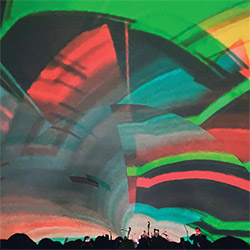
![Mazurek, Rob & Exploding Star Orchestra: Live at Adler Planetarium [VINYL]](https://www.teuthida.com/productImages/misc4/35233.jpg)
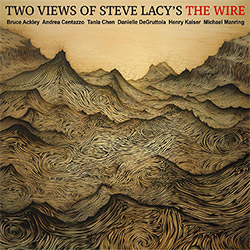
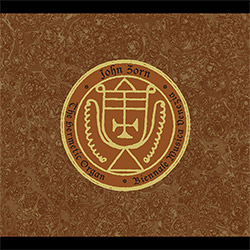
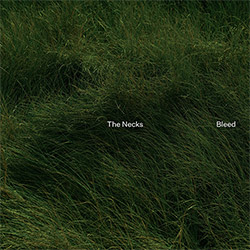
![Necks, The: Bleed [VINYL BLACK]](https://www.teuthida.com/productImages/misc4/35250.jpg)
![Necks, The: Bleed [VINYL GREEN + DOWNLOAD]](https://www.teuthida.com/productImages/misc4/35251.jpg)
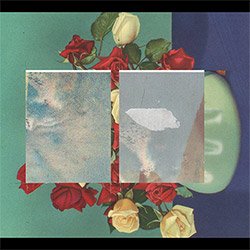



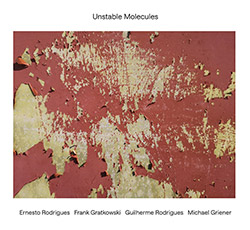
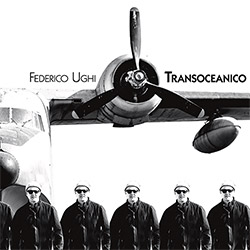
![Attias, Michael (Attias / Leibson / Pavolka / Ferber / Hoffman): Quartet Music Vol. I: LuMiSong [VINYL]](https://www.teuthida.com/productImages/misc4/34878.jpg)
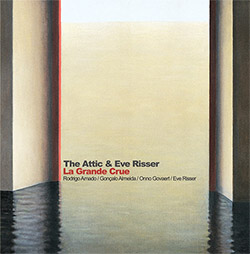
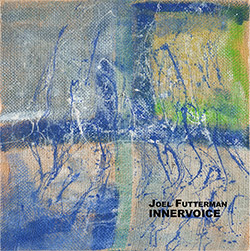

![Cunningham, Alex / Eli Wallace : The Terrible Habit Of Theatre [VINYL]](https://www.teuthida.com/productImages/misc4/35351.jpg)
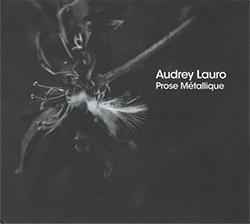
![Hoffman, Christopher (feat. Henry Threadgill / Anna Webber): Vision Is The Identity [VINYL]](https://www.teuthida.com/productImages/misc4/34877.jpg)

![Gregg, J.J. / Pavan Kanekal: Ease & Flow [CD + DOWNLOAD]](https://www.teuthida.com/productImages/misc4/35335.jpg)
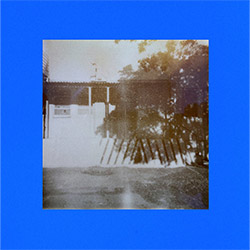
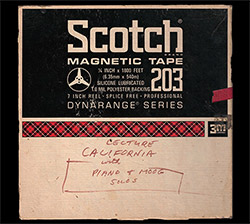
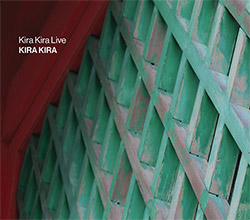
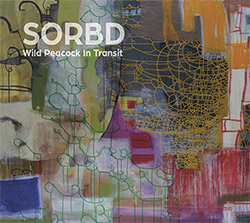
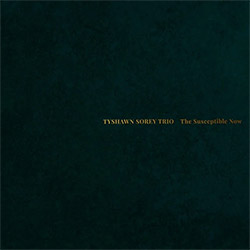



![DNS: Taking Big Bites Of The Khandas Three Cafes Deep [2 CDs]](https://www.teuthida.com/productImages/misc4/35334.jpg)




![Cleaver, Gerald: The Process [VINYL]](https://www.teuthida.com/productImages/misc4/34966.jpg)




![Alva Noto: HYbr:ID II [VINYL 2 LPs]](https://www.teuthida.com/productImages/misc4/35201.jpg)

![Baron, Derek / Luke Martin: Distinct and Concealed [CASSETTE + DOWNLOAD]](https://www.teuthida.com/productImages/misc4/35079.jpg)

![Lyle, Erica Dawn : Colonial Motels [CASSETTE + DOWNLOAD]](https://www.teuthida.com/productImages/misc4/35080.jpg)







![Alva Noto: HYbr:ID III [VINYL 2 LPs]](https://www.teuthida.com/productImages/misc4/35011.jpg)
![Kubisch, Christina / Trondheim Voices: Stromsanger 2022 For Six Voices And Electromagnetic Waves [VINYL]](https://www.teuthida.com/productImages/misc4/34628.jpg)
![Ristic, Manja / Joana Guerra / Veronica Cerrotta: Slani pejzazi [CASSETTE + DOWNLOAD]](https://www.teuthida.com/productImages/misc4/34928.jpg)
![Euro Herc: Segnali [CASSETTE + DOWNLOAD]](https://www.teuthida.com/productImages/misc4/34929.jpg)







![Zurria, Manuel: Fame di Vento [3 CDs]](https://www.teuthida.com/productImages/misc4/35167.jpg)

![Granberg, Magnus / Nattens Inbrott / Skogen: Holde Traume, Kehret Wieder! [2 CDs]](https://www.teuthida.com/productImages/misc4/35038.jpg)
![Frey, Jurg: Outermost Melodie [2 CDs]](https://www.teuthida.com/productImages/misc4/35039.jpg)

![Pavone, Jessica: Reverse Bloom [VINYL]](https://www.teuthida.com/productImages/misc4/34895.jpg)




![Modney (Modney / Wooley / Gentile / Roberts / Pluta / Symthe / ...): Ascending Primes [2 CDs]](https://www.teuthida.com/productImages/misc4/34852.jpg)






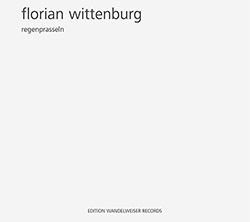

![Kirschner, Kenneth / Joseph Branciforte: From the Machine: Volume 1 [VINYL]](https://www.teuthida.com/productImages/misc4/30767.jpg)
![Golub, Phillip: Filters [VINYL + DOWNLOAD]](https://www.teuthida.com/productImages/misc4/32379.jpg)
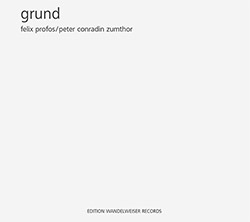

![Deerlady (Obomsawin, Mali / Magdalena Abrego): Greatest Hits [VINYL]](https://www.teuthida.com/productImages/misc4/34876.jpg)




![Haino, Keiji: Black Blues [2 CDs]](https://www.teuthida.com/productImages/misc4/35109.jpg)



![Surplus 1980: Illusion of Consistency [CD]](https://www.teuthida.com/productImages/misc4/35069.jpg)
![Staiano, Moe: Away Towards the Light [VINYL + DOWNLOAD]](https://www.teuthida.com/productImages/misc4/35037.jpg)




![Caveira (Gomes / Sousa / Abras / Ferrandini): Ficar Vivo [VINYL]](https://www.teuthida.com/productImages/misc4/34643.jpg)
![Gregg, J. J. / David Van Auken: Lunar Prairie [CD w/ DOWNLOAD]](https://www.teuthida.com/productImages/misc4/34611.jpg)

![Coultrain: Mundus [VINYL]](https://www.teuthida.com/productImages/misc4/32439.jpg)
![Mattin: Songbook #6 [VINYL]](https://www.teuthida.com/productImages/misc4/27317.jpg)
![Punkappella: Wake Up [7-inch VINYL]](https://www.teuthida.com/productImages/misc4/17519.jpg)
![Residents, The: WARNING: UNiNC.: Live And Experimental Recordings 1971-1972 [VINYL 2 LPs]](https://www.teuthida.com/productImages/misc4/31521.jpg)
![Coultrain: Phantasmagoria [VINYL]](https://www.teuthida.com/productImages/misc4/30142.jpg)
![Lennon, Sean Ono: Asterisms [VINYL]](https://www.teuthida.com/productImages/misc4/34517.jpg)

![Rotem Geffen: The Night Is The Night [VINYL]](https://www.teuthida.com/productImages/misc4/34631.jpg)

![Coley, Byron: Dating Tips for Touring Bands [VINYL]](https://www.teuthida.com/productImages/misc4/17906.jpg)

![Lost Kisses: My Life is Sad & Funny [DVD]](https://www.teuthida.com/productImages/misc4/lostKissesDVD.jpg)